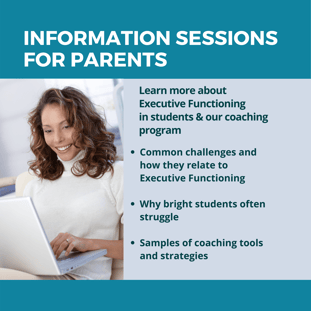As parents, we often get in the habit of worrying about our kids.
When we suspect that our child’s problems aren’t just run-of-the-mill issues but something that might have a significant impact on their children’s lives, we wonder if we need help from a qualified professional.
But because of all of our worrying, it’s hard to have a point of reference we feel we can trust when it comes to rationally evaluating our children's problems and progress.
This article explains neuropsychological testing for children in-depth to help parents understand what to expect before, during, and after evaluation.
In This Article
What Is Neuropsychological Testing?
What's Covered in a Child Neuropsychological Test?
How Are Neuropsychological Evaluations Performed?
What Are Signs Your Child May Benefit From Neuropsychological Testing?
What is a Neuropsychological Evaluation?
When children go in for a neuropsychological evaluation clinicians collect data about the school and home environment through interviews with the parents to measure their executive functioning skills including attention, organization, memory, socialization, emotional control, and more. These tests highlight specific learning strengths and weaknesses present for each child.
While the term "neuropsychological testing" might conjure up images of patients on gurneys with wires attached to their heads and doctors hovering nearby, that couldn’t be further from reality.
Neuropsychology looks at the relationship between the brain and behavior. In neuropsychological evaluations, both standardized tests and observation are used as ways to measure what is happening with the patient.
Kay Seligsohn, a neuropsychologist at Mass General Hospital explains it:
“The metaphor I use is that it’s a series of snapshots. I’m taking a whole series of pictures of the children in the room with me—both how they do on tests, as well as my observations on how they do on a wide range of tasks. I’m gathering data from parents about how they’re functioning at home. I’m gathering data from teachers about how they’re functioning in school. And if I’ve done my job well and my camera lens was in focus, I can usually put those snapshots into a cohesive narrative from a whole bunch of different sources.”
What's Covered in a Children's Neuropsychological Test?
Neuropsychologists will test for a wide array of factors that might be impacting children. Here are some of those factors:
- Intelligence
- Academic skills
- Problem-solving
- Attention and concentration
- Learning and memory
- Processing speed
- Visual-spatial perception
- Language skills
- Visual motor and fine motor skills
- Sensory perception
- Executive function skills (such as planning, organization, initiating and inhibiting behaviors)
- Emotional function skills
- Social skills
Once the testing and evaluation are complete—a process that usually requires several meetings and involves both the child and the parents—neuropsychologists will work on developing a report that explains the child’s history, their test results, and a recommended plan of intervention. Oftentimes, parents use this report to advocate for special services within the child’s school system. There’s also a verbal conversation with the parents to explain the findings and answer questions.
How Are Children's Neuropsychological Evaluations Performed?
Neuropsychologists break down learning problems in adolescents into their component parts. For example, perhaps a child struggles to follow directions, and that reveals itself during testing. A neuropsychologist will go to a deeper level of testing to evaluate the root cause. For example:
- The child is unable to concentrate when directions are being given
- The child was unable to comprehend the directions he received
- The child was unable to remember the directions
Here’s how Ann Helmus, a licensed psychologist, practicing neuropsychologist, and the founder of Neuropsychology & Education Services for Children & Adolescents (NESCA), explains how the in-depth nature of neuropsychological testing can help identify underlying problems children may be having:
“A quality comprehensive assessment can sort out between these possibilities by interpreting the test results in the context of the child’s history and through close attention to how the child performs on each test. For example, does the child misread the word because he/she is being hasty—sees the word ‘party’ and immediately says ‘pretty—or is the child painstakingly trying to sound out the word and clearly doesn’t know rules of phonics? Impulsively responding to target words would be more typical of a child with ADHD, while poor phonetic decoding skills would lead one to pursue more vigorously the possibility that the child has a learning disability.“
What Are Signs Your Child May Benefit From Neuropsychological Testing?
So does your child truly need neuropsychological testing, or are you over-amplifying the situation in your own mind? That’s the question so many parents grapple with.
Seligsohn says the way way to make the decision is “to ask the question: is there a persistent problem? Is your child not learning as well? Not getting good grades? Is the teacher making comments about attention or behavior? Is your child overly shy or aggressive?”
She says that many parents will start with a tutor or therapist, and if the problems still persist, they’ll turn to a neuropsychologist.
Helmus advises parents to think about the cost-benefit analysis.
“Having a neuropsychological evaluation requires a considerable investment of resources—time, money, and school absence. If a child is considerably behind developmentally in some sphere, the return on investment is likely to be quite high. As a result of a quality neuropsychological evaluation, the child’s parents, educational team, and other involved professionals will have a clear view of the child’s needs and a ‘road map’ for helping the child to overcome difficulties and supporting the child at home and school.”
Some of the behaviors that lead parents to neuropsychological testing are:
- Inability to sustain attention
- Anxiety/fear or reluctance to engage in developmentally appropriate activities
- Atypical social behaviors/inability to establish peer friendships in a manner expected for age
- Slow acquisition of academic skills
- Obviously bright but inconsistently performing or under-performing academically
Another litmus test that is often used for neuropsychological testing is whether a child’s overall well-being is being negatively impacted by cognitive, emotional, or behavioral abilities.
For example, Jason flunking his first semester biology quiz might be a point of concern, but it isn’t affecting his overall disposition. But when Jason hasn’t been able to score higher than a C- on a test in the last 6 months, that kind of persistent poor performance might be having a significant impact on his self-image and confidence as a student. Jason getting in a yelling match at gym class might sound a bit troubling, but there may have been an explanation behind it. Jason getting into fights with kids at school several times a month is a pattern that is far more serious and might be an indicator that there are emotional regulation problems to investigate.
In other words, persistent trends of negative behavior are a sign that neuropsychological testing might be in order. Discussions with a child’s school teachers are a good place to start. Tutors or therapists are often times a good next step, and oftentimes, discussions with those various professionals can offer clarity on whether neuropsychological testing is needed.
Wondering if Executive Function coaching can help your child? Watch our on-demand information session to learn more:

